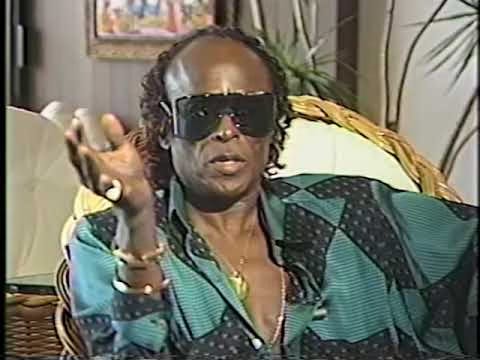In the early 1970s, Miles Davis took a sabbatical primarily due to health issues and personal challenges. He had been struggling with chronic pain due to hip problems and sickle cell anemia, as well as substance abuse problems involving alcohol and drugs. Additionally, Davis was reportedly exhausted after years of intense touring and recording. These factors led to his retirement from the music industry in 1975, during which he focused on his health and personal life. He returned to music in the early 1980s with renewed energy and creativity.
In this final period, his music incorporated a blend of styles that leaned heavily towards pop, funk, and the burgeoning sounds of synthesizer-driven music. Davis showed a clear interest in newer musical trends, including the influence of 1980s pop, rock, and electronica.
His albums from this era, such as "Tutu" (1986), which won a Grammy Award, prominently feature synthesized bass lines, electronic effects, and drum machines, showing a significant departure from his earlier acoustic jazz works. The album was influenced by contemporary artists and producers, including Prince and Marcus Miller, who played a critical role in shaping the sound of this period by incorporating elements of funk, R&B, and soul.
This late phase of his career demonstrated Davis's enduring willingness to innovate and adapt to new musical landscapes, despite mixed reactions from critics and fans who were more accustomed to his acoustic jazz periods. His work during the 1980s continues to be a testament to his restless artistic spirit and willingness to embrace new musical challenges and styles.
In addition to forming a new group, Miles made a number of television appearances, most notably on CBS’ 60 Minutes, and several talk shows.
60 Minutes - 1987
The Arsenio Hall Show - 1989
The Dick Cavett Show, - 1986
Bonus - Miles Davis Actor
Miles Davis made a memorable guest appearance in the popular TV show *Miami Vice*. In the episode titled "Junk Love," which aired during the show's second season, Davis played the role of a pimp named Ivory Jones. Although his role was relatively small, his appearance was notable because it showcased Davis in a different light compared to his musical career. His distinctive persona added a unique flavor to the episode, and his involvement is often remembered by fans of the show and of Davis alike. Miles showed real potential as an actor.






I never saw this legendary “Vice” episode before. Miles did a solid job of acting there. Very entertaining. I remember seeing the Reasoner piece on Miles, which was pretty good. Thanks for posting! Arsenio and Cavett were in way over their heads in dealing with Miles.
That was an unbelievable level of connection between Mr. Davis and Mr. Cavett. Mr. Davis seemed to be sincerely touched by the gift which carried Mr. Cavett's integrity of humor and the poignancy of Mr. Davis' continued experience of racism.